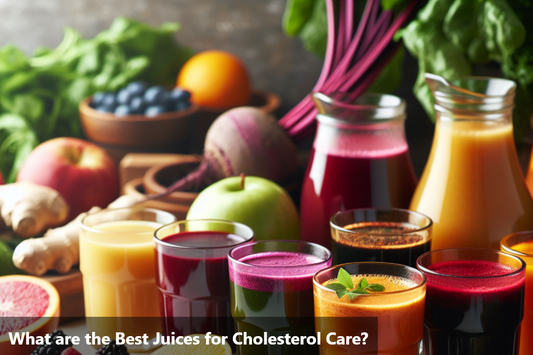Cholesterol is a vital fat in your blood, crucial for cell membranes and hormone production. High cholesterol can lead to atherosclerosis, narrowing arteries and causing heart disease and stroke. Managing cholesterol through diet is key. Avoid saturated fats, processed meats, and high-sugar foods to reduce cardiovascular risk. Understanding and making informed dietary choices can improve overall well-being.
High Cholesterol and Diet
High cholesterol is closely tied to our diet. Certain foods can increase cholesterol levels. Foods high in saturated and trans fats are major contributors. Saturated fats found in red meat, dairy, and oils like palm and coconut increase cholesterol. Trans fats in processed foods raise cholesterol too. Processed meats like bacon are high in saturated fats. Sugary foods and drinks can boost cholesterol and weight. Avoiding these foods can help manage cholesterol levels effectively, promoting better health.
-
Amount of cholesterol in most common binge food items per serving
Food Item
Cholesterol Content (mg per serving)
Egg Yolk (1 large)
186 mg
Liver (3 oz)
331 mg
Shrimp (3 oz)
179 mg
Bacon (3 slices)
30 mg
Butter (1 tbsp)
31 mg
Cheese (1 oz)
27 mg
Beef Steak (3 oz)
72 mg
Fast Food Hamburger
85 mg
Ice Cream (1 cup)
90 mg
Fried Chicken (3 oz)
96 mg
Cream (1 cup)
130 mg
Pork (3 oz)
70 mg
Shellfish (like lobster, crab) (3 oz)
61 mg
Sausage (1 link)
80 mg
Foods to Avoid with High Cholesterol
When it comes to managing high cholesterol levels, it is crucial to be mindful of the foods we consume. Certain dietary choices can significantly impact cholesterol levels. Here is a specific list of foods that individuals with high cholesterol should avoid:
Saturated Fats: Foods high in saturated fats can raise cholesterol levels. These include items like fatty cuts of meat, full-fat dairy products, and certain processed foods.
Trans Fats: Trans fats are known to increase "bad" cholesterol levels while lowering "good" cholesterol levels. Foods like fried foods, baked goods, and margarine often contain trans fats.
Processed Meats: Processed meats like sausages, bacon, and hot dogs are high in saturated fats and cholesterol, making them detrimental for individuals with high cholesterol.
High-Sugar Foods: Consuming foods high in added sugars can lead to weight gain and higher cholesterol levels. Sweetened beverages, candies, and desserts should be limited.
By avoiding these foods, individuals can better manage their cholesterol levels and reduce the risk of heart disease. Making conscious choices in our diet plays a significant role in maintaining overall health and well-being.
Healthy Alternatives
When it comes to managing high cholesterol levels, making smart food choices plays a vital role. By opting for healthier alternatives, you can effectively improve your cholesterol profile and promote overall well-being.
Fruits and Vegetables: Incorporating a variety of colorful fruits and vegetables into your diet can provide essential nutrients and fiber that support heart health. Berries, citrus fruits, leafy greens, and cruciferous vegetables are excellent choices.
Whole Grains: Replace refined grains with whole grains like brown rice, quinoa, oats, and whole wheat bread. These options are rich in fiber, which can help lower cholesterol levels and reduce the risk of heart disease.
Lean Protein Sources: Choose lean proteins such as skinless poultry, fish, legumes, and tofu. These options are lower in saturated fats and can be beneficial for managing cholesterol.
Healthy Fats: Opt for sources of healthy fats like avocados, nuts, seeds, and olive oil. These fats can improve your cholesterol levels by increasing "good" HDL cholesterol and reducing "bad" LDL cholesterol.
By focusing on incorporating these healthy alternatives into your diet, you can take proactive steps towards improving your cholesterol profile and supporting your cardiovascular health. Remember, small changes in your food choices can make a significant impact on your overall well-being.
To conclude:
Managing high cholesterol levels is essential for maintaining good overall health as it can significantly increase the risk of heart diseases and other health complications. Understanding how different foods impact your cholesterol levels is crucial for making informed dietary choices. Limiting foods high in saturated and trans fats, processed meats, and sugary treats is key to preventing elevated cholesterol levels. Instead, prioritize fruits, vegetables, whole grains, lean proteins, and healthy fats in your diet to lower cholesterol and improve cardiovascular health.
By embracing these natural, unprocessed foods, you can proactively manage your cholesterol levels and support heart health. Making conscious food choices plays a vital role in sustaining a healthy heart. Adopting a cholesterol-friendly diet not only involves avoiding harmful foods but also incorporating nutrient-rich options that promote heart health. Building a balanced and cholesterol-conscious diet is a positive step towards enhancing overall well-being and reducing the risk of heart-related issues.
FAQs:
Q: Are fried foods bad for high cholesterol? A: Yes, fried foods are generally high in unhealthy fats and should be avoided if you have high cholesterol.
Q: Should I limit my intake of red meat if I have high cholesterol? A: It is recommended to reduce consumption of red meat as it can be high in saturated fats that may raise cholesterol levels.
Q: Are processed foods harmful for individuals with high cholesterol? A: Yes, processed foods often contain trans fats and high levels of sodium, which can negatively impact cholesterol levels.
Q: Can sugary treats affect my cholesterol levels? A: Yes, foods high in refined sugars and simple carbohydrates can contribute to high cholesterol levels.
Q: Are dairy products with full fat a concern for high cholesterol? A: Full-fat dairy products might be high in saturated fats, so it's advisable to opt for low-fat or non-fat alternatives when managing cholesterol levels.
This Blog post is an initiative by DiabeSmart, to provide accurate and Nutritionist / Doctor approved information related to Diabetes. DiabeSmart is India's first Food brand designed specifically for Diabetics, that has been clinically tested on Diabetics and Pre-Diabetics to deliver 55% - 70% lower Sugar spikes. DiabeSmart is part of Lo! Foods - India's leading brand for Everyday Functional Health foods.




